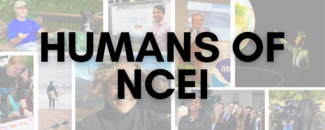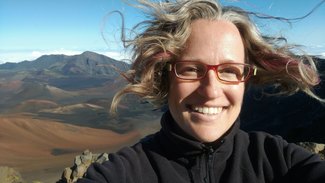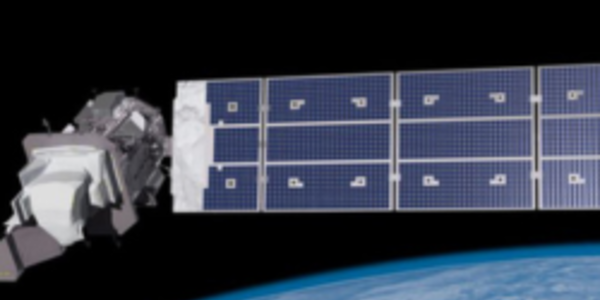
Here at NCEI, we aren’t just data—we are people. In our Humans of NCEI series, meet the awesome minds that manage one of the largest archives of atmospheric, coastal, geophysical, and oceanic research in the world. Get to know Dr. Laurel Rachmeler, a data steward who specializes in studying the magnetic nature of the sun's atmosphere.
How did you end up at NCEI?
I came to NCEI from NASA in Huntsville, Alabama, where I worked primarily on telescopes and instrumentation for suborbital sounding rockets. I guess you could say that I was a bonafide rocket scientist! After almost five years there, I was ready for a new challenge, and I really missed the Colorado mountains. A former colleague encouraged me to apply to the position at NCEI and become the solar data steward here. This position puts a lot of my past experience to good use, and it is exciting to be working for NOAA!
What is your specific area of expertise?
In my career I have mostly studied the magnetic nature of the sun's atmosphere. I have worked on computer simulations, data analysis, and building telescopes. The solar corona is a beautiful and crazy place, and there is a lot still left to be discovered.
What does a usual workday look like for you?
I'm still figuring that out! I only started a few months ago, in the middle of the COVID-19 pandemic, so I haven't even been to my office yet! I do a little of everything: corresponding with people who use NOAA solar data, developing code to create new NOAA data products, working on future mission architecture, being on committees, and reviewing papers for the solar community, etc.
What question are you asked most often when someone finds out what you do? How do you respond?
The concept of a "Data Steward" is not broadly known. We are the general caretakers of the data, making sure that the data are usable and accessible, understanding how the data are used by NOAA and the broader community, and making sure that the data are not compromised in the future. It includes managing scientific data repositories, deeply understanding the structure and content of the data, and keeping up with changing times, scientific understanding and technologies so that these valuable resources are not lost to time and are fully leveraged by all of NOAA's user communities.
What sort of training and education would one need for your job?
I have an undergraduate Physics degree from Bryn Mawr College, a Master’s and PhD in solar physics from the University of Colorado Boulder. The degrees aren't technically required, but knowledge of the field, familiarity with many types of data, and experience in research using said data are all extremely useful. Often, getting graduate degrees is the most direct path to research and expertise in solar physics.
What inspired you to pursue a career in your field?
Our sun is seriously awe-inspiring! It is beautiful and complicated and violent and life-giving. It is close enough that it has direct impacts on Earth, but far enough away that there is still lots to learn.
What projects are you working on now? Are there any upcoming projects that you are excited about?
I am working on many, many projects! One of the most exciting ones is SWFO, Space Weather Follow-On, a space-based observatory system that is in development. I am also working to improve our legacy data availability, which is perhaps less exciting but very important.
Who are you outside of your career?
I am a serial crafter. I am addicted to learning new art and craft skills and have done a little bit of everything. Recently I have been sewing a lot of masks for friends and family, and even created a free pattern for others to use. I also love baking and spending time with my husband and my dog.
Last country visited?
Tenerife in the Canary Islands, part of Spain, highly recommended! I travel a lot, both for work and for vacation. I can't wait to be able to travel again.
Do you have any pets?
I may be biased, but my rescue dog Nelly is the best dog in the world.
*Please note that all of the information was current through the publication date.




